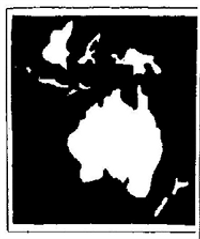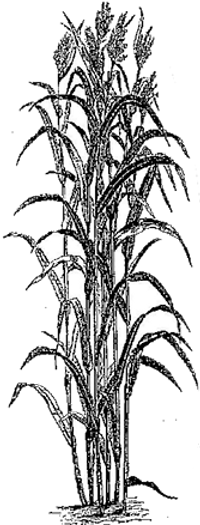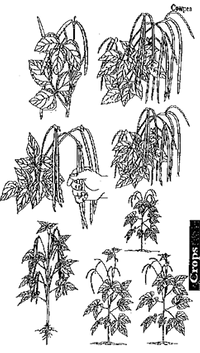- Video Reviews: Interactive Workshops from World Vision Australia
- Review: World Vision Australia Publications
- Review: Together Magazine Published by World Vision International
- Review: Footsteps, A Quarterly Newsletter for Christians in Rural Development)
- HEART Missionary Training Institute
- Review: Agricultural Christian Fellowship Newsletter
- Review: HortIdeas, An Interesting and Helpful Newsletter
- Review: Honey Bee, A Newsletter about Farmer's Innovations
- Review: Third World Resource Guide
- Audio-Forum Specializes in Audio Foreign Language Self-Study Courses
- Book/Tape Review: Spanish in the Field
- The Developing Countries Farm Radio Network Produces Informative Scripts for Third World Farmers
- The International Institute of Rural Reconstruction
- Roland Bunch is a Development Adviser with COSECHA
- The University of Florida Offers Short Courses
- Natural Resources Institute Training Courses
- Correspondence Study in Agriculture
- Publications Catalog of the Natural Resources Institute
- FAO Publications Catalog
- BOSTID Publications
- Peace Corps manuals
- The Society for Economic Botany
- Book Review: Botanica de los Cultivos Tropicales
- Book Review: A Flora of the Andes in Spanish
- Illustrations for Use in Development Work
- More Information Services for Technical Questions
INTERACTIVE VIDEOS ON DEVELOPMENT FROM WORLD VISION AUSTRALIA. Two excellent video workshops have been produced by Dr. John Steward and the staff of World Vision Australia. The Gift That Releases: First Steps in People-Centered Development is a tool to assist groups beginning to think about the factors which affect marginalized peoples, and it challenges the participants to evaluate their response to the poor. Mike Fennema reported that this video was extremely helpful in training farmer-extensionists in Cambodia. He found that these "first steps" encouraged the facilitator staff to examine their own attitudes toward and expectations of the farmers with whom they worked, and to consider how they could relate to them in the most beneficial way. The videos give input from experienced people around the world and promote discussion among the workshop participants, so people are motivated to apply the lessons to their own situation.
Biblical Holism: Where God, People, and Deeds Connect traces the Bible's teaching on holistic ministry to integrate development and evangelism. Our world views make a practical difference in why and how we work. The workshop fosters personal reflection, applied in life. Both series include the following materials: a 170-minute video tape, audio tapes for review or where video is not available, and workbook/study guides. Each video workshop is US$149.95 plus postage; workbooks alone are US$24.95. (Before buying the workshops, you may request a free introductory video from WV in Australia, Zimbabwe, or the UK or MARC in the USA.) Order from MARC Publications, 121 E. Huntington Dr., Monrovia, CA 91016-3400, USA; phone 800/777-7752; fax 818/301-7786; e-mail MARCpubs@wvi.org. They are also available for A$99 plus $7 postage from World Vision Australia Bookstore at GPO Box 399C, Melbourne, Vic 3001; phone 613 9287-2297; fax -2427; e-mail AUSTRALIA_BOOKSHOPO@wvi.org. Return to CONTENTS.
WORLD VISION AUSTRALIA PUBLICATIONS. The Bridge invites readers along on individual's journeys and insights into working with the poor. It is published by WV's Development Services Department, which educates about people-change and community development in the two-thirds world. The Department provides advice and service to students and missionaries who are considering involvement in cross-cultural rural development, with a focus on sustainability and empowerment.
who are considering involvement in cross-cultural rural development, with a focus on sustainability and empowerment.
Each issue (about A$8 plus postage) chronicles the experiences and reflections of different people in various roles in development. The issues include: 1) Christian Missionaries in Community Work; 2) Environmental Implications of Development Assistance; 3) A Journey in Development (on Michael Duncan's incarnational approach to serving the poor in Manila's slums); 4) Book Reviews: Christian Transformation; 5) Not Relief--But Release: Learning Among Poor Partners (holistic ministry); 6) Starting Small, Slow, and Sure: Hope Grows in Cambodia; 7) Who Holds the Stick? Hope Grows in Cambodia; 8) Sidetracked!--For the Kingdom (Rus Alit's ministry through appropriate technologies); 9) Discipleship, Development, and Pain (an extension of #3 above, highly recommended for those wrestling with theology and response amidst poverty); 10) Elephants, Water Pumps...and Other Signs of Transformation; 11) The Provincial Development Approach in Cebu. Order from WVA Bookstore (above).
The Global Issues Bulletin (6/year) provides abstracts and access to photocopied articles on topics related to the two-thirds world. You can quickly scan the summaries and book reviews, then conveniently order the items you want from World Vision. The editors screen over a hundred international journals for relevant articles. Summaries are given on the topics of aging, agriculture, aid agencies, children and war, debt, development, economics, environment, families, human rights, landmines, tourism, women, World Bank, and much more. New books are also reviewed and are available from the WV Bookshop. Subscriptions are A$35 in Australia/A$45 Pacific/A$55 elsewhere (airmail). Contact World Vision Australia Information Centre at GPO Box 399C, Melbourne, Vic 3001; phone 613 9287-2294; fax -2427; e-mail infoserv@wva.org.au. Return to CONTENTS.
TOGETHER MAGAZINE PUBLISHED BY WORLD VISION INTERNATIONAL. Many people have suggested to ECHO over the years that in addition to the technical notes in ECHO Development Notes, we should include articles and case studies on working with communities and discussion of issues in the broad field of development. One reason we do not do this is that we have so little expertise in this area. The other reason is that Together and other publications are already doing the job. "Together is published quarterly as a service to those who minister to the poor and needy of the world in the name of Jesus Christ. It is intended to bring them encouragement and stimulus as they offer God's wholeness in a broken world."
 Here are some articles that appeared in recent issues. "Transformational development," "Loan associations as bridges to social development," "The poor and the affluent: theological issues," "Through the valley of the shadow [of war]," "Mines still plague Cambodia," "The aftermath of violence," "Communities that heal," "Social justice is nothing new for evangelicals," "Is your evaluation unit effective?," "Communities respond to AIDS," "To do or to be...Is that the question?," "Forgiveness and reconciliation: a foundation for development," "Prayer in evaluation," and more. Each issue features different perspectives on a theme. Together is sent free of charge to those engaged in Christian ministry in the third world; others and those in developed countries may subscribe for US$15. Particular back issues can be sent as long as they are in stock. Write to Together, World Vision International, 121 East Huntington Drive, Monrovia, CA 91016-3400, USA; phone 818/303-8811; fax 818/301-7786. Return to CONTENTS.
Here are some articles that appeared in recent issues. "Transformational development," "Loan associations as bridges to social development," "The poor and the affluent: theological issues," "Through the valley of the shadow [of war]," "Mines still plague Cambodia," "The aftermath of violence," "Communities that heal," "Social justice is nothing new for evangelicals," "Is your evaluation unit effective?," "Communities respond to AIDS," "To do or to be...Is that the question?," "Forgiveness and reconciliation: a foundation for development," "Prayer in evaluation," and more. Each issue features different perspectives on a theme. Together is sent free of charge to those engaged in Christian ministry in the third world; others and those in developed countries may subscribe for US$15. Particular back issues can be sent as long as they are in stock. Write to Together, World Vision International, 121 East Huntington Drive, Monrovia, CA 91016-3400, USA; phone 818/303-8811; fax 818/301-7786. Return to CONTENTS.
FOOTSTEPS, A QUARTERLY NEWSLETTER FOR CHRISTIANS IN RURAL DEVELOPMENT. This is one of the essential publications for people working in community health and development. "The idea is to encourage Christians world-wide who are working to promote rural development, many of whom may feel isolated--whether through physical isolation, spiritual isolation, lack of resources or simply through frustrating work situations. We hope it provides a stimulus of new ideas and enthusiasm." Each issue follows a particular theme; past ones have featured vision problems, credit schemes, women's health, home gardens, training, literacy, small livestock, and sanitation.
The theme of the 16-page December 1995 issue is fish farming. The lead article discusses the basic considerations in raising fish: water, oxygen, food, and safety. Simple, clear guidelines are given for determining whether a pond site can hold water, adding organic fertilizers, and signs and remedies for oxygen shortage. Other articles give details on sealing and building fish ponds, raising fingerlings, and using fish in rice paddies. Illustrations are excellent. Readers' letters, resources, a Bible study on Jesus' breakfast of fish based on John 21, notes on neem, a Thai raised bed gardening system, and agroforestry in the Dominican Republic are also included.
An issue on water gives two case studies, a success and a failure, and suggestions on working with community water projects. Another article gives two teaching aids to convince mothers of the need to prevent dehydration. One illustration shows a healthy baby drawn on a plastic bag filled with water. After a small hole is made, and water drains out, the baby begins looking wrinkled and ill. When one of the mothers pours water into the bag faster than it is going out, the baby becomes normal again. Two well-illustrated pages give instructions for making ferro-cement water tanks to catch rainwater. The description of an innovative radio program on Radio Rurale in Chad could give you some helpful ideas for a radio outreach. Hints on growing vegetables when there is little water, a Bible study based on the theme of water, and other articles also appear.
Footsteps is free to individuals working to promote health and development. It is available in English, French, Portuguese, and Spanish. Readers are invited to contribute views, articles, letters, and photos. To be placed on the mailing list, give brief details of your work and your language preference to Footsteps Mailing List, Tear Fund, 100 Church Road, Teddington, Middlesex, TW11 8QE, UK; phone (0) 181 977 9144. Return to CONTENTS.
HEART MISSIONARY TRAINING INSTITUTE prepares missionaries to live in third world settings through practical training in a simulated village. Students learn appropriate technologies, primary health, nutrition, cross-cultural communication and development, small animal husbandry, and intensive gardening. Training sessions are 1-15 weeks or can be tailored for groups. HEART is 2 hours from ECHO. Contact HEART Institute, 5301 U.S. Hwy. 27 South, Lake Wales, FL 33853, USA; phone 239/638-1188; fax 239/638-1472. Return to CONTENTS.
 AGRICULTUAL CHRISTIAN FELLOWSHIP NEWSLETTER serves as an "encouragement for Australians in overseas development, challenging to mission, informing for prayer, and a technical resource service." This is a networking group which enables members to get in touch with others doing similar work and share experiences from the field (much like EDN for Australia). People write with updates and stories from their mission work. Courses and conferences, many recent publications, news on upcoming initiatives, and technical information are also included in the newsletter's sixteen pages. Membership is a biennial donation of A$20; free to missionaries. Write Agricultural Christian Fellowship, c/o GPO, Box 399C, Melbourne, Victoria 3001, AUSTRALIA. Return to CONTENTS.
AGRICULTUAL CHRISTIAN FELLOWSHIP NEWSLETTER serves as an "encouragement for Australians in overseas development, challenging to mission, informing for prayer, and a technical resource service." This is a networking group which enables members to get in touch with others doing similar work and share experiences from the field (much like EDN for Australia). People write with updates and stories from their mission work. Courses and conferences, many recent publications, news on upcoming initiatives, and technical information are also included in the newsletter's sixteen pages. Membership is a biennial donation of A$20; free to missionaries. Write Agricultural Christian Fellowship, c/o GPO, Box 399C, Melbourne, Victoria 3001, AUSTRALIA. Return to CONTENTS.
HORT IDEAS IS AN INTERESTING AND HELPFUL NEWSLETTER. Occasionally people write us that they read EDN as soon as it arrives. Hort Ideas is in that category for myself. Gregory and Patricia Williams, the authors of this 12-page monthly newsletter, scan the horticultural literature and other newsletters, attend the most important horticultural conferences, look over advertisements, and correspond with a large base of subscribers to select the most relevant information for condensing into a paragraph or two. They scan both technical and popular sources. Addresses are always provided to get a copy of the full article, place an order, or write for further information. I put at least one article from most issues in my file to share with EDN readers. Here are excerpts of several examples.
Not all composts are created equal... at least with respect to their abilities to suppress damping-off (a fungus disease which kills seedlings soon after they emerge). Composted hardwood bark, composted sewage sludge and certain other organic materials have disease-suppressing effects. Recent research at the Ohio Agricultural Research and Development Center has shown that organic materials composted at high temperatures (above 140 deg.F) can actually be conducive to damping-off due to Pythium ultimum. Only materials composted at lower temperatures are suppressive, apparently because higher temperatures kill the microorganisms that are antagonistic to Pythium. The bottom line is to get compost from the cool edge of the pile, rather than the hot center, if you want to control damping off of seedlings. High temperature composting kills pathogenic microorganisms, but it can kill some beneficial ones too.
Curved cucumbers? Here's why. Experiments in Japan show clearly that curvature is an abnormal condition due to shading or too few leaves per fruit. Cucumbers curve when they aren't getting enough food! Straight cucumbers result from early thinning to make sure the leaf area per fruit is large, and by trellising to minimize shading of the leaves.
Aluminum sulfate for slugs. Most molluscicides are based on methiocarb or metaldehyde. [Many gardeners are reluctant to use these poisonous chemicals.] Experiments at the Long Ashton Research Station in Great Britain suggest that aluminum  sulfate works as well as, or even better than, these more toxic chemicals. It also costs less and is easy to apply. All commercial molluscicides were found to protect Chinese cabbage seedlings during the first four days following application, then damage increased. So frequent applications may be needed. This makes a less toxic treatment even more important. Some results suggest that aluminum sulfate acts mainly as a repellent, not as a poison, which would lead to a slower buildup of resistance. Adding aluminum sulfate at a rate of 5 pounds per 1000 square feet won't lower the soil pH very much; 10 times that rate is needed to lower the pH from 7.5 to 6.5.
sulfate works as well as, or even better than, these more toxic chemicals. It also costs less and is easy to apply. All commercial molluscicides were found to protect Chinese cabbage seedlings during the first four days following application, then damage increased. So frequent applications may be needed. This makes a less toxic treatment even more important. Some results suggest that aluminum sulfate acts mainly as a repellent, not as a poison, which would lead to a slower buildup of resistance. Adding aluminum sulfate at a rate of 5 pounds per 1000 square feet won't lower the soil pH very much; 10 times that rate is needed to lower the pH from 7.5 to 6.5.
Because items for Hort Ideas are selected for its primary clientele of readers in the USA, many will, of course, not be directly relevant to tropical small farms. Also, the field of horticulture includes landscaping and ornamentals, which may or may not be important where you work. If you are heavily involved in horticulture, though, I think you will become an avid subscriber. Subscriptions are US$20 in US; $26 Canada/Mexico; Overseas: $30 surface, $35 air mail. Write Hort Ideas, 460 Black Lick Rd., Gravel Switch, KY 40328, USA. Return to CONTENTS.
HONEY BEE, A NEWSLETTER ABOUT FARMER'S INNOVATIONS. Honey Bee is a newsletter specializing in reporting indigenous knowledge and grassroots creativity. The focus is on documenting farmers' innovations and experimentation in sustainable technologies. Hundreds of innovations have been summarized to date. Some examples follow.
Volume 3(2) mentions how farmers in the Tungbhadra area of India control leaf miner damage on groundnuts by flooding the fields overnight. Volume 2(1) mentions that tribal farmers in the Bharuch district control rats in wheat fields by intercropping with sunflowers. It is believed this provides sturdy support for the owls that kill and eat the rats at night. The same issue tells about controlling termites with castor cake, castor oil, kerosene, rotation with castor bean, or irrigation.
It is important to remember that reports of indigenous knowledge document what people do. This does not prove that they either are or are not effective. You might look at each issue as providing numerous ideas for experimentation.
Honey Bee is a publication of SRISTI (Society for Research and Initiatives for Sustainable Technologies and Institutions). This group would like to be in touch with other members of ECHO's network interested in sharing "local knowledge." Write Prof. Anil K. Gupta, Editor, Indian Institute of Management, Vastrapur, Ahmedabad 380 015, INDIA. Honey Bee is published in 7 Indian languages, and they are interested in translations and adaptations for other parts of the world. Subscriptions can be paid in US dollars to "SRISTI Innovations": $5 for small farmers, $15 for development workers, and $30 for professionals. Write for other arrangements if unable to afford a subscription. Return to CONTENTS.
THIRD WORLD RESOURCE GUIDE is a review of 425 organizations, 95 periodicals, and 275 other references useful for those involved in sustainable agriculture, forestry, and development worldwide. The index by country helps you locate other groups in your area with similar concerns, as well as identify organizations which give assistance in particular fields. The Guide includes many small groups not found in other lists, though it was printed in May 1993 and some of the information is outdated. Order for US$6 in US/$8 airmail overseas. One copy is sent free of charge to small organizations in developing countries. (There is also a service called TERN--Traveler's Earth Repair Network--which links travelers with host organizations working in over 100 countries; ask about becoming a TERN traveler or host.) Contact Friends of the Trees, P.O. Box 4469, Bellingham, WA 98227, USA; phone/fax 360/738-4972; e-mail trees@pacificrim.net. Return to CONTENTS.
AUDIO-FORUM SPECIALIZES IN AUDIO FOREIGN LANGUAGE SELF-STUDY COURSES. Audio-Forum, "The Language Source" offers 264 courses in 91 languages. They retail selected materials produced by others, including the Foreign Service Institute series in those languages where this is available. (The FSI series in Spanish was extremely helpful to me some years ago.) The catalog also contains a variety of language-learning aids, such as ethnic music, travel guides, foreign-language films, and books on language learning.
In addition to the most commonly studied languages (Spanish, French, German, Italian, Japanese, and Russian), they have  courses in Afrikaans, Albanian, Amharic, Arabic, Armenian, Azerbaijani, Bulgarian, Burmese, Cantonese, Cajun, Catalan, Cherokee, Chickasaw, Chinese, Chinyanja, Choctaw, Czech, Danish, Dutch, Esperanto, Estonian, Finnish, Fula, Gaelic Scots, Georgian, Greek, Haitian Creole, Hausa, Hawaiian, Hebrew, Hindi, Hungarian, Icelandic, Igbo, Indonesian, Irish, Kazakh, Khmer, Kiowa, Kirundi, Korean, Lakota, Latin, Latvian, Lenape, Lithuanian, Malay, Mandarin, Mohawk, Mongolian, More, Navajo, Northern and Southern Sotho, Norwegian, Persian, Polish, Portuguese, Romanian, Salish, Sanskrit, Serbo-Croatian, Shona, Sinhalese, Slovak, Swahili, Swedish, Tagalog, Telugu, Thai, Tibetan, Tlingit, Tswana, Turkish, Twi, Ukranian, Urdu, Uzbek, Vietnamese, Welsh, Xhosa, Yiddish, Yoruba, and Zulu. A free catalog is available by writing Audio-Forum, 96 Broad St., Guilford, CT 06437, USA. There is also a London office, but we have no address for it. Return to CONTENTS.
courses in Afrikaans, Albanian, Amharic, Arabic, Armenian, Azerbaijani, Bulgarian, Burmese, Cantonese, Cajun, Catalan, Cherokee, Chickasaw, Chinese, Chinyanja, Choctaw, Czech, Danish, Dutch, Esperanto, Estonian, Finnish, Fula, Gaelic Scots, Georgian, Greek, Haitian Creole, Hausa, Hawaiian, Hebrew, Hindi, Hungarian, Icelandic, Igbo, Indonesian, Irish, Kazakh, Khmer, Kiowa, Kirundi, Korean, Lakota, Latin, Latvian, Lenape, Lithuanian, Malay, Mandarin, Mohawk, Mongolian, More, Navajo, Northern and Southern Sotho, Norwegian, Persian, Polish, Portuguese, Romanian, Salish, Sanskrit, Serbo-Croatian, Shona, Sinhalese, Slovak, Swahili, Swedish, Tagalog, Telugu, Thai, Tibetan, Tlingit, Tswana, Turkish, Twi, Ukranian, Urdu, Uzbek, Vietnamese, Welsh, Xhosa, Yiddish, Yoruba, and Zulu. A free catalog is available by writing Audio-Forum, 96 Broad St., Guilford, CT 06437, USA. There is also a London office, but we have no address for it. Return to CONTENTS.
SPANISH IN THE FIELD. The AgAccess Company released this set consisting of a 248-page illustrated book, 4 cassette tapes and a pocket farm and agribusiness dictionary. If you or your employees work with Spanish-speaking farmers and are not fluent in Spanish, this is a great investment. It is designed to teach the unique agricultural and mechanical terms that few Spanish courses cover.
Chapters in the book are: pay, hiring and firing; time, weather and calendar; directions and measures; tools, containers and materials; soil preparation; irrigation; machinery and parts, safety in the field and shop, how to drive; health problems, accidents; chemical spraying; grapes; cotton; trees; row crops, produce; grains and cereals.
The book is primarily vocabulary, sentences that one might want to say while working on the subject of the chapter, and drawings with parts named. The tapes primarily consist of sentences followed by the Spanish translation. Although I have a good general knowledge of Spanish, I have never heard much of the daily hands-on agricultural vocabulary. I am finding it helpful to listen to the tapes over breakfast or while driving. The price is $59.95 plus shipping. Order from AgAccess, P.O. Box 2008, Davis, CA 95617, USA; phone 916/756-7177; fax 916/756-7188. They have a very wide selection of agricultural books. You might want to ask for their catalog. Return to CONTENTS.
 THE DEVELOPING COUNTRIES FARM RADIO NETWORK (DCFRN) PRODUCES INFORMATIVE SCRIPTS FOR THIRD WORLD FARMERS. They produce packages of twelve scripts which are meant to be read directly to the small farmer via radio segments lasting a few minutes per topic. (ECHO's publications, on the other hand, are directed to development agents and assume at least a high school education.) The radio scripts have simple, low-cost techniques of benefit to the small farmer with limited resources and difficult conditions. The practical information can help the farm family increase their food supplies and improve health and nutrition.
THE DEVELOPING COUNTRIES FARM RADIO NETWORK (DCFRN) PRODUCES INFORMATIVE SCRIPTS FOR THIRD WORLD FARMERS. They produce packages of twelve scripts which are meant to be read directly to the small farmer via radio segments lasting a few minutes per topic. (ECHO's publications, on the other hand, are directed to development agents and assume at least a high school education.) The radio scripts have simple, low-cost techniques of benefit to the small farmer with limited resources and difficult conditions. The practical information can help the farm family increase their food supplies and improve health and nutrition.
The ideas in the DCFRN scripts can be used in community education for many years. Often the detailed script, which is available in English, Spanish or French, is translated into the local language and read by a local announcer. But its use is not limited to radio. Many have found that they can use the script (which is supplemented with diagrams and drawings) to prepare materials for their own person-to-person agricultural extension work. There is no charge to receive the scripts. The units are sent quarterly and recipients are asked to fill out an evaluation and report back on how they used the material. Write to: Developing Countries Farm Radio Network, 40 Dundas Street West, Box 12, Suite 227B, Toronto, Ontario, CANADA M5G 2C2; phone/fax 416/593-3752; e-mail dcfrn@web.apc.org. For East and Southern Africa, write to the Network partner: Livai Matarirano, Programme Manager, Farm Radio Network, P.O. Box 308, Harare, ZIMBABWE; phone/fax 263-4- 495317; e-mail africare@mango.zw. Return to CONTENTS.
THE INTERNATIONAL INSTITUTE OF RURAL RECONSTRUCTION offers short courses for rural development professionals. IIRR trains leaders in participatory, people-centered, sustainable approaches to solving the problems of the world's poor. The courses are repeated annually, but you should allow plenty of time for registration as they tend to fill quickly. They run 2-4 weeks at their campus in the Philippines. Participants must be proficient in English, willing and able to participate in intensive training, and have rural development experience (3 years or more) related to the course of interest. Fees range from US$1300-2500.
Topics include (dates given are for 1997): Development Communication (2/24-3/21), Environmental Management: Integrated conservation and development (3/10-28), Rural Development Management (4/7-5/2 and 8/4-29), Gender Analysis in agriculture, forestry and natural resources (5/5-23), Systems in Community-Managed Health (6/2-27), Training of Trainers on sustainable agriculture (7/7-25), Regenerative Agriculture (9/1-26), Applying Indigenous knowledge in development (9/29-10/17), Development Approaches in the Third World (10/13-24), and Household Food Security through Home Gardening (11/24-12/12). For more information and an application, contact: Mila Resma, Training Division, International Institute of Rural Reconstruction, Silang, Cavite 4118, Philippines; phone 63-96-402-0891; fax 63-2- 522-2494; e-mail iirr@phil.gn.apc.org. Completed applications should be received no later than 2-3 months prior to the start of the course. Return to CONTENTS.
ROLAND BUNCH IS A DEVELOPMENT ADVISER with the training organization COSECHA, whose purpose is to spread knowledge and use of the "people-centered development" process, as described in his book Two Ears of Corn. COSECHA's address is Apartado 3586, Tegucigalpa, HONDURAS; phone (504) 76-6140, ext. 2132; fax (504) 76-6241. Roland Bunch is also the Head of the Department of Rural Development at the Panamerican Agricultural School in Honduras. Return to CONTENTS.
THE UNIVERSITY OF FLORIDA SPONSORS SHORT COURSES (1-3 weeks) in international development and technical assistance. Some of the courses offered in 1995 include: "Agroforestry Systems: Design and Management," "Vegetable Production and Management for International Markets," "Embryo Transfer in Cattle," "Post-Harvest Technology for Horticultural Crops," and a series on "Farming Systems Research and Extension." Course fees are $1450-2500. Contact the University of Florida, International Programs/FANR, Training Unit, P.O. Box 110329, Gainesville, FL 32611-0329, USA; phone 904/392-1965; fax 904/392-7127; e-mail itd@gnv.ifas.ufl.edu. Return to CONTENTS.
NATURAL RESOURCES INSTITUTE, part of the British overseas aid program, offers many practically-based training courses: "Grain Storage Management," "Post-harvest Horticulture," "Pesticide Residue Analysis," "Handling and Quality of Fish in the Tropics," "Mycotoxins," "Basic Food Microbiology," and "Microbial Insecticides." Courses range from 12-15 weeks and cost œ7000-10000, plus fares and accomodation. Candidates from countries eligible for British Government Aid may be able to obtain financial support. Individual training programs are also available in Resource Assessment and Farming Systems Development, Integrated Pest Management, and Food Science and Crop Utilization. For more information, contact Training Contracts Officer, NRI, Central Avenue, Chatham Maritime, Kent ME4 4TB, UNITED KINGDOM; phone 44 1634 880088; fax 44 1634 880066/77; e-mail NRI@UKC.AC.UK. (NRI also publishes many technical booklets on land resources, forestry, and the processing, storing, and marketing tropical products. See below for details.) Return to CONTENTS.
CORRESPONDENCE STUDY OR DISTANCE LEARNING IN AGRICULTURE AND DEVELOPMENT. ECHO is often asked where people can do college-level agricultural study by correspondence (through the mail rather than living at a university). Distance learning is a great alternative for people who want to sharpen their skills or earn a degree while remaining on the field, and with electronic communication it is more popular and easier than ever. The following programs offer individual courses or entire degrees by distance education. We asked people in our network to send us information on their programs. Please continue to let us know about new offerings you find, and we will keep updating our list at ECHO.
Pennsylvania State University, Independent Learning Program, 207 Mitchell Building, University Park, PA 16802-3601, USA; phone 800/252-3592 or 814/865-5403. Penn State has over 300 credit and noncredit courses which can be applied toward a degree or taken individually. Of most interest to ECHO's network might be the noncredit courses, which look interesting and are very inexpensive (average about US$20). Some of these titles include: Farm management for part-time and small farmers, soil and water conservation, soil fertility and management, sheep husbandry, stock feeding, animal breeding, Beef production, Breeds of dairy cattle, Silos and silage, Beekeeping, Dressing and curing meat, Ice cream manufacture, Plant propagation, Small fruits, Production of market turkeys, Rabbit production, Small woodlot forestry, Microbiology, Campground development, and more.
Pacific Christian College, Graduate Studies, 2500 E. Nutwood Ave., Fullerton, CA 92631, USA; phone 800/762-1294 ext. 641; fax 714/738-4564; e-mail AlanR@echonet.org. Among several other graduate programs, PCC has an MBA, MS, and Certificate in International Development with a field-based, task-oriented component in collaboration with Food for the Hungry International. The program provides training in disaster relief and community development for enrolled workers in developing countries. This is a new opportunity for Christian workers to continue graduate studies while in the field.
SACRED Africa (Sustainable Agricultural Centre for Research and Development in Africa), P.O. Box 2275, Bungoma, KENYA; phone 254-0337-30293, writes: "We offer a 3-month training course for extensionists, researchers, development workers, and policy makers on sustainable agriculture. We have a set of theory and practical courses which participants take in their own place of work. The topics covered include compost making; soil-improving legumes; adaptive research; seed selection, preservation, and banking; botanical pesticides; community development; soil fertility management; etc. The course costs US$1000 per participant."
Universidad Estatal a Distancia, Apartado 474-2050, Montes de Oca. COSTA RICA; fax (506) 224 0580. Offer Bachelor's and Master's degrees in various fields, including business administration of agricultural enterprises, agroindustry, natural resource management and protection, and agricultural extension.
University of East Anglia, School of Development Studies, Norwich NR4 7TJ, UK; phone +44-(0)603-592331; fax -505262. UEA offers diplomas, Masters, and Doctoral programs in various fields related to development. Some members of ECHO's network have been able to stay on the field while completing Ph.D. degrees in the school's "overseas-based research program," in which the university supervisor visits the student's site.
University of Guelph, Independent Study, OAC ACCESS, Guelph, Ontario N1G 2W1, CANADA; email to request a catalog and calendar is handbook@access.uoguelph.ca. Guelph offers complete diplomas, (shorter) certificates, and individual courses in horticulture and agriculture via independent learning. These are oriented for temperate climates. Some course titles include: Principles and practices of soil science, Livestock production systems, Business management, Weed control, Advanced beekeeping (includes tropical), Soil conservation, Energy on the farm, Forages, Field machinery, Animal diseases and parasites, Dairy goat production, Meat technology, Managing small rural enterprise, Urban tree management, Safe pesticide handling and storage, and others. Many of the horticultural courses are related to landscaping. Fees range from C$70 to C$275 per course, and average about C$200 (about US$140).
University of London, The External Programme, Wye College, Ashford, Kent TN25 5AH, UK; phone 01233 812401; fax 01233 812138; e-mail ep@wye.ac.uk. Wye College offers M.Sc. and postgraduate diplomas by distance education in agricultural development, environmental management, agricultural economics, food industry management and marketing, and more. The program began in 1988, and we have heard many good reports from its students who are in ECHO's network. We recently received these comments from Andrew Betts, who studied agricultural development: "The course was well organized and of a high academic standard. It was largely economics-based and is likely to appeal to those in higher level positions...and there are new courses that would have more appeal to grassroots development workers. As with all distance learning courses, prospective students should not underestimate the discipline required to undertake the course. It was definitely worth the effort. The course has already proven useful in my current job, and I believe in securing and carrying out my next one too. The courses are not cheap--but it should be possible to obtain grants towards taking them, as I did."
University of Zimbabwe, Centre for Distance Education, P.O. Box MP 167, Mount Pleasant, Harare, ZIMBABWE. John Mautsa wrote that the university will be opening a B.Sc. Agriculture degree by distance learning in 1997.
Wheaton College, Extension and Continuing Education, Wheaton, IL 60187, USA; phone 800/325-8718 or 708/752-5944; fax 708/752-5935. Wheaton offers graduate credit and non-credit courses in theology, Bible, Chinese ministry, and evangelism. Return to CONTENTS.
PUBLICATIONS CATALOG OF THE NATURAL RESOURCES INSTITUTE (NRI). This is a superb resource. How does one review a 60-page catalog of books in a few paragraphs? For starters, NRI is part of the British overseas aid program. Their goal is to alleviate poverty in developing countries by increasing the productivity of renewable natural resources. They work in resource assessment and farming systems, integrated pest management, food storage, processing, packaging, transport and marketing.
Among their titles are the most useful books in our library. Single copies of their several hundred titles are available at no charge to organizations working in countries that are eligible for British aid. I will list JUST A VERY FEW titles under each category in their book catalog to give a "feel" for the range of subjects. Some are large books; many others are booklets. Many are relevant to community-level development; others are oriented more toward research or country-wide development. To order a catalog, write NRI, Central Avenue, Chatham Maritime, Kent, ME4 4TB, UK; phone +44 1634 880088. (Most titles published since 1980 are available on microfiche; contact Chadwyck-Healey Ltd., The Quorum, Barnwell Road, Cambridge CB5 8SW, UK; phone +44 1223 215512.) A partial listing follows:
Land Resources: Revised Classification of the Soils of Belize; Development Prospects of the Southern Rift Valley in Ethiopia; A Soil Survey of Seychelles; Development of the Water Resources of Bali. Forestry: Pulping Characteristics of Hardwood Species Growing in Plantations in Fiji [there are many studies of pulping characteristics of specific trees]; Field Guide to Forest Trees of Ghana; Charcoal Production Handbook. Crop Production: Onions in Tropical Regions; Root Crops; Food Legumes.
Processing of Non-Food Crops: Processing of Oil Palm Fruit and its Products [most of the rest relate to dye products]. Processing of Food Crops: Processing of Macadamia Nuts; Starch Extraction: Checklist of Commercially Available Machinery. Food Storage: Food Storage Manual; Storage and Handling of Onions; Evaluation of Structures Suitable for Emergency Storage in Tropical Countries. Grain After Harvest: Training in Grain Post-harvest Technology for Developing Countries; Fumigation Technology for Developing Countries.
Pests: Constraints on Adoption of IPM in Developing Countries; Pest Control in ... [several titles: Groundnuts; Tropical Legumes; Tropical Onions; Tropical Root Crops; Tropical Tomatoes]; Locust and Grasshopper Agricultural Manual; The Desert Locust Pocket Book [a great many locust titles, most very technical]. Post Harvest Technology: Guidelines for Management of Insect Pests and their Natural Enemies in Wetland Rice; Use of Plants and Minerals as Traditional Protectants of Stored Products.
Animal Feeds and Products: Production of Protein Foods and Concentrates from Oilseeds; Small-Scale Manufacture of Compound Animal Feed; Manufacture of Leather Uppers; Rabbit as a Producer of Meat and Skins in Developing Countries. Fish: An Illustrated Guide to Fish Preparation; Fish Handling, Preservation and Processing in the Tropics; Comparative Study of Solar and Sun Drying of Fish in Ecuador.
Producer Gas: Wood and Agricultural Residue Combustion Systems: Survey of Commercially Available Equipment; Producer Gas: Its Potential and Application in Developing Countries; Anaerobic Digesters for Small- scale Vegetable Processing Plants. Rural Technologies: Pedal-Powered Grain Mill; Charcoal Production using a Transportable Metal Kiln; Heat Production from Sawdust. Industrial Economics: Manufacture of Dry-cell Batteries; Industrial Profile of Breadmaking; Economic Aspects of Small-scale Fish Freezing; Tanning of Hides and Skins; Tomato Paste or Puree: An Industrial Profile; Industrial Profile of Small-scale Expelling of Vegetable Oil; Guide to Economics of Dehydration of Vegetables in Developing Countries.
Marketing: Methodologies for Studying Agricultural Markets in Developing Countries; Selected Markets for Chilies and paprika; Market for Dried Fruit in the United Kingdom, Germany and France. [There are many other highly specific marketing studies.] Return to CONTENTS.
FAO PUBLICATIONS CATALOG lists a great variety of titles useful in agricultural development, available from Food and Agriculture Organization of the UN, Viale delle Terme di Caracalla, 00100 Rome, ITALY. Return to CONTENTS.
BOSTID REPORTS (Board on Science and Technology for International Development) from the U.S. National Research  Council includes many titles EDN readers will recognize. The publications give a basic look at a topic to stimulate interest, serve as a technical reference, and facilitate research contacts. Although many are out of print, several which are still available include Lost Crops of Africa; various topics on fuel alternatives for developing countries; Agroforestry in the West African Sahel; Conserving Biodiversity: A Research Agenda for Development Agencies; Mangium and Other Fast-Growing Acacias for the Humid Tropics; books on Calliandra, Casuarinas, Leucaena, and Neem; The Water Buffalo; Butterfly Farming in Papua New Guinea; Little-Known Asian Animals; Microlivestock; Saline Agriculture: Salt-Tolerant Plants for Developing Countries; Vetiver Grass; and more. Request a publications catalog listing regional distributors from BOSTID/FO-2060Z, 2101 Constitution Ave. NW, Washington, D.C. 20418, USA. Return to CONTENTS.
Council includes many titles EDN readers will recognize. The publications give a basic look at a topic to stimulate interest, serve as a technical reference, and facilitate research contacts. Although many are out of print, several which are still available include Lost Crops of Africa; various topics on fuel alternatives for developing countries; Agroforestry in the West African Sahel; Conserving Biodiversity: A Research Agenda for Development Agencies; Mangium and Other Fast-Growing Acacias for the Humid Tropics; books on Calliandra, Casuarinas, Leucaena, and Neem; The Water Buffalo; Butterfly Farming in Papua New Guinea; Little-Known Asian Animals; Microlivestock; Saline Agriculture: Salt-Tolerant Plants for Developing Countries; Vetiver Grass; and more. Request a publications catalog listing regional distributors from BOSTID/FO-2060Z, 2101 Constitution Ave. NW, Washington, D.C. 20418, USA. Return to CONTENTS.
PEACE CORPS MANUALS are some of the best resources on a wide variety of topics--easy-to-read, practical, and complete. The manuals are in the public domain, so they may be copied. Peace Corps publications are no longer available free from PC offices; they can now be purchased from: National Technical Information Service, 5285 Port Royal Rd., Springfield, VA 22161, USA; phone 703/487-4650; and ERIC Document Reproduction Service, EDR/CBIS Federal, 7420 Fullerton Rd., Suite 110, Springfield, VA 22153-2852, USA; phone 800/443-3742 or 703/440-1400. We priced a few, about $30-40. Some of the manuals can be found on the internet at http://www.clark.net/pub/peace/PeaceCorps.html. Return to CONTENTS.
THE SOCIETY FOR ECONOMIC BOTANY is an international scientific organization which encourages research on the past, present, and future uses of plants. Members from a variety of disciplines are interested in useful plants, plant products, or the relationship of plants and people. The excellent quarterly journal Economic Botany often publishes comprehensive articles about many of the plants in ECHO's seedbank, and it is a very useful resource in our library. Annual membership is US$40; $25 for students. For further information, write Lucille N. Kaplan, Dept. of Anthropology, Univ. of Massachusetts, 100 Morrisey Blvd., Boston, MA 02125-3393, USA; phone 617/287-6850; fax 617/287-6650. Return to CONTENTS.
BOTANICA DE LOS CULTIVOS TROPICALES. This 445-page, Spanish language paperback is written "to give students of agronomy in Latin America basic information about origin, diversity and structure of cultivated plants in the tropics." The abundant detailed line drawings are especially impressive. It is somewhat like the famous Purseglove's "Tropical Crops," with better illustrations design. Order for about US$18 (plus postage which varies by region) from IICA, SEDE Central, Apdo. Postal 55-2200, Coronado, San Jose, COSTA RICA. Return to CONTENTS.
A FLORA OF THE ANDES IN SPANISH. Werner Moosbrugger sent us this book from the Corporacion Autonoma Regional de las Cuencas de los Rio Bogota, GTZ, and Kreditanstalt fur Wiederaufbau. El Manto de La Tierra: Flora de los Andes (332 pp.) is filled with beautiful color photographs of 150 trees or shrubs of economic value growing in the Andes. It is easily carried, measuring 5x8 inches (13x20 cm). Two pages are given to each tree. One page contains two color pictures: a close-up showing leaves, flowers and seed or fruit and one showing the entire plant. The second page shows family, scientific and common names, a code for the major uses and discussions of morphology, geographic distribution, propagation and growth and particular uses. There are indices for leaf type, scientific name, common name and climate (hot, temperate, cold). It is available for about US$11 plus shipping costs (about $5-10 airmail, depending on your location). Please order from Werner Moosbrugger, Apdo. Aereo 100409, Bogota 10, COLOMBIA, South America; fax 235-89-94. Return to CONTENTS.
COPYRIGHT-FREE ILLUSTRATIONS FOR USE IN DEVELOPMENT WORK. Illustrations attract interest and help you  communicate more effectively, but it can be difficult to find good pictures dealing with agriculture and related topics in developing countries. These are two resources designed for extension communicators who are not artists but need to produce interesting printed materials. You may trace them, enlarge them, scan them into your computer, or whatever you wish. Use them in posters, pamphlets, books, magazines, and transparencies. We used many pictures from both these resources in producing the book you are reading. The authors of Clip Art for Development contacted a number of artists and communicators and assembled more than 150 pages of copyright-free line drawings which illustrate people, farming practices,
communicate more effectively, but it can be difficult to find good pictures dealing with agriculture and related topics in developing countries. These are two resources designed for extension communicators who are not artists but need to produce interesting printed materials. You may trace them, enlarge them, scan them into your computer, or whatever you wish. Use them in posters, pamphlets, books, magazines, and transparencies. We used many pictures from both these resources in producing the book you are reading. The authors of Clip Art for Development contacted a number of artists and communicators and assembled more than 150 pages of copyright-free line drawings which illustrate people, farming practices,  livestock and crops in developing countries. We turn here first when we need a clear, simple drawing of common plants and animals. The price is $11 plus shipping ($4 US, $5 surface elsewhere, $12 airmail). Professor Eric Abbott, Dept. of Journalism and Mass Communication, Iowa State University, Ames, IA 50011, USA.
livestock and crops in developing countries. We turn here first when we need a clear, simple drawing of common plants and animals. The price is $11 plus shipping ($4 US, $5 surface elsewhere, $12 airmail). Professor Eric Abbott, Dept. of Journalism and Mass Communication, Iowa State University, Ames, IA 50011, USA.
If we need more elaborate drawings or expressive pictures of people, we turn to The Copy Book (110 pp.). A highlight in this book is the wide variety of styles included, from simple line sketches to more complex scenes in ethnic art. This costs œ10.95 (about US$21) plus postage from: IT Publications, 103-105 Southampton Row, London WC1B 4HH, UK; fax 44 171 436 2013; e-mail itpubs@gn.apc.org. Ask for distributor catalogs in your country. Return to CONTENTS.
MORE INFORMATION SERVICES FOR TECHNICAL QUESTIONS. Here are several more resources which address technical questions. Agromisa, P.O. Box 41, 6700 AA Wageningen, NETHERLANDS; fax (31) 317 419178; e-mail agromisa@tool.nl. Agromisa offers a question-and-answer service about small-scale agriculture and related topics. They also publish low-cost practical 'Agrodoks' in English, French, Spanish, and Portuguese, available from CTA (below). The services are free to people from most African, Caribbean, and Pacific countries. CTA (Technical Center for Agricultural and Rural Cooperation), Postbus 380, 6700 AJ Wageningen, NETHERLANDS; fax (31) 317 460067; name@cta.nl. CTA publishes the always relevant, informative, and fascinating bulletin Spore (in our must-read category), plus about 50 titles a year on topics in tropical agriculture and rural development. CIRAD (Centre de Cooperation Internationale en Recherche Agronomique pour le Developpement), B.P. 5035, 34032 Montpellier CEDEX 1, FRANCE; fax (33) 6761 5820; e-mail radigon@ist.cirad.fr. An information center and technical question service on a wide variety of agricultural topics, principally in Africa. IFOAM (International Federation of Organic Agriculture Movements), Okozentrum Imsbach, 66636 Tholey-Theley, GERMANY; fax (49) 6853 30110; e-mail IFOAM- SECRETARY@oln.comlink.apc.org. IFOAM promotes sustainable food production, holds conferences, and exchanges knowledge on organic agriculture. Return to CONTENTS.